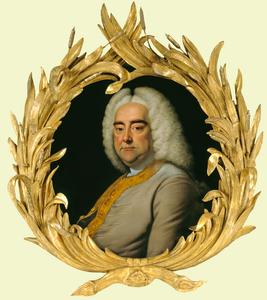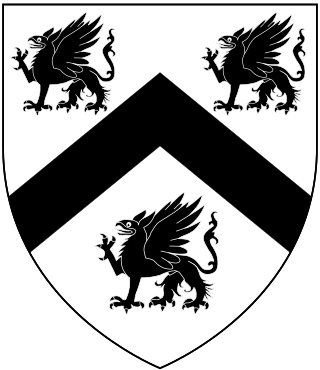Related Research Articles

Malcolm Benjamin Graham Christopher Williamson, was an Australian composer. He was the Master of the Queen's Music from 1975 until his death.
The rondo is an instrumental musical form introduced in the Classical period.

Teppo Hauta-aho was a Finnish double bassist and composer.
In music, cantabile[kanˈtaːbile], an Italian word, means literally "singable" or "songlike". In instrumental music, it is a particular style of playing designed to imitate the human voice.

Mary Stuart, Countess of Bute, 1st Baroness Mount Stuart was the wife of British nobleman John Stuart, 3rd Earl of Bute, who served as Prime Minister from 1762 to 1763.

John McCabe was a British composer and pianist. He created works in many different forms, including symphonies, ballets, and solo works for the piano. He served as director of the London College of Music from 1983 to 1990. Guy Rickards praised him as "one of Britain's finest composers in the past half-century" and "a pianist of formidable gifts and wide-ranging sympathies".
The Concerto in C minor for Piano, Trumpet, and String Orchestra, Op. 35, was completed by Dmitri Shostakovich in 1933.

Thomas Mudge was an English horologist who invented the lever escapement, a technological improvement to the pocket watch.

Admiral of the Fleet Sir William Rowley KB was a Royal Navy officer. He distinguished himself by his determination as commander of the vanguard at the Battle of Toulon in February 1744 during the War of the Austrian Succession. He went on to be Commander-in-Chief of the Mediterranean Fleet in August 1744 and successfully kept the Spanish and French fleets out of the Mediterranean area but was relieved of his command following criticism of his decision as presiding officer at a court-martial.
Robert Charles Suderburg was an American composer, conductor, and pianist.

The Handel organ concertos, Op. 7, HWV 306–311, refer to the six organ concertos for organ and orchestra composed by George Frideric Handel in London between 1740 and 1751, published posthumously in 1761 by the printing company of John Walsh. They were written for performance during Handel's oratorios, contain almost entirely original material, including some of his most popular and inspired movements.
A fine and delicate touch, a volant finger, and a ready delivery of passages the most difficult, are the praise of inferior artists: they were not noticed in Handel, whose excellencies were of a far superior kind; and his amazing command of the instrument, the fullness of his harmony, the grandeur and dignity of his style, the copiousness of his imagination, and the fertility of his invention were qualities that absorbed every inferior attainment. When he gave a concerto, his method in general was to introduce it with a voluntary movement on the diapasons, which stole on the ear in a slow and solemn progression; the harmony close wrought, and as full as could possibly be expressed; the passages concatenated with stupendous art, the whole at the same time being perfectly intelligible, and carrying the appearance of great simplicity. This kind of prelude was succeeded by the concerto itself, which he executed with a degree of spirit and firmness that no one ever pretended to equal.
Ronald Geoffrey Corp, is a composer, conductor and Anglican priest. He is founder and artistic director of the New London Orchestra (NLO) and the New London Children's Choir. Corp is musical director of the London Chorus, a position he took up in 1994, and is also musical director of the Highgate Choral Society.

Heneage Finch, 2nd Earl of Aylesford (1683–1757) was a British peer and member of the House of Lords, styled Lord Guernsey from 1714 to 1719.

Zachariah Mudge (1694–1769) was an English clergyman, known for his sermons, and his deist or Platonist views.
Richard Annesley, 6th Earl of Anglesey, known as The Lord Altham between 1727 and 1737, was an Irish peer and governor of Wexford. He is known for the doubts surrounding his claim to the barony of Altham, for the questionable legitimacy of his marriages and therefore of his son's claim to his titles, and for his arranging the kidnapping of his nephew, a rival claimant to his titles and estates. This incident is believed to have influenced part of the novel Kidnapped by Robert Louis Stevenson.

Heneage Finch, 3rd Earl of Aylesford, styled Lord Guernsey between 1719 and 1757, was a British peer and politician.

Frances Mary Richardson Currer was a British heiress and book collector.
Sir Leonard Chamberlain or Chamberlayne was an English soldier and politician, the Governor of Guernsey from 1553.
Richard Goodson was an English musician and composer, who held the post of Heather Professor of Music at the University of Oxford.
References
- ↑ Richard Platt (2001). "Mudge, Richard". Grove Music Online . Oxford Music Online. Oxford University Press. doi:10.1093/gmo/9781561592630.article.19288.
- ↑ Peter Lynan (2004). "Mudge, Richard". The Oxford Dictionary of National Biography . Oxford Dictionary of National Biography (online ed.). Oxford University Press. doi:10.1093/ref:odnb/66380.(Subscription or UK public library membership required.)
- ↑ "Mudge tudor7173 [JV]: Classical Music Reviews - June 2009 MusicWeb-International".